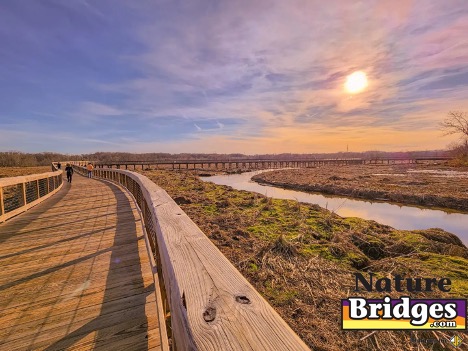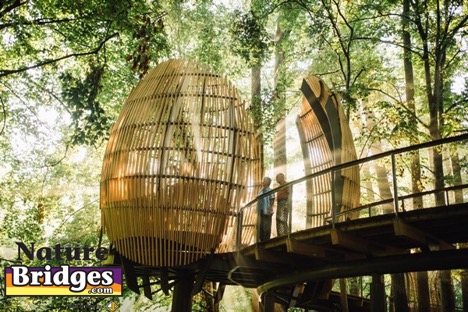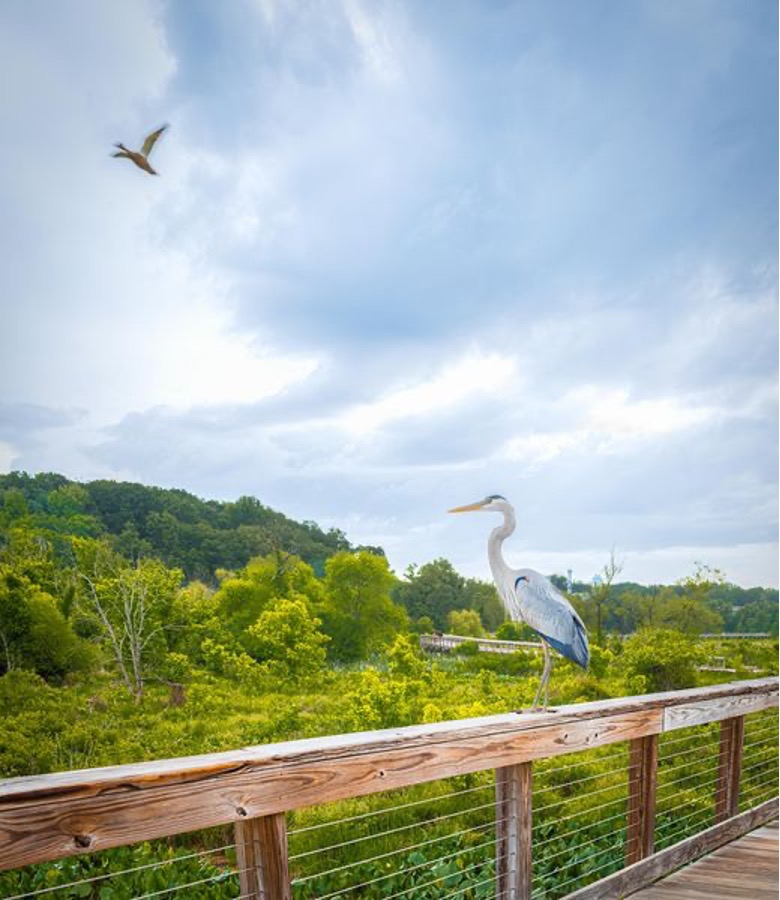
Our planet’s ecosystems have a fragile balance, and it is our role as humans to safeguard it. Understanding those ecosystems is a key component of protecting them, and environmental research provides us with critical insights into our impact on the environment as well as the state of biodiversity and impacts of climate change. The knowledge gained from environmental research allows us to make informed decisions and develop sustainable practices so that we can minimize our impact on the earth. Without that knowledge, it becomes more difficult to protect and preserve natural resources and habitats.
Innovation and creativity are keys to effective environmental research. One tool that is invaluable – but often overlooked – is bridges. Bridges, along with other pathways like boardwalks, have found applications in environmental research that allow scientists to collect data, observe plant and animal life, and monitor ecosystems.
Bridges as Observation Platforms

Bridge and boardwalk designs can allow for elevated vantage points that distance us from the plants and animals in an area. Researchers can then observe ecosystems from unique perspectives over rivers and ravines and even in forests. These walkways let scientists monitor wildlife behavior, study plants without touching them, and observe changes in habitats over time.
Canopy walkways in forests are just one way boardwalk design can help. These pathways often consist of interconnected bridges and platforms. Researchers can easily access and observe plants and animals in the treetops, which was previously a challenging and understudied environment. Using these elevated boardwalks gives researchers a deeper understanding of these complex ecosystems.
Collecting Data

Photo Credit: Charles Mitchell
Sensors, cameras, and other monitoring devices are used by scientists to collect data about an area’s temperature, humidity, water and air quality, and more. Real-time data can provide a better look at environmental changes and trends. Bridges are both stable and accessible, making them ideal locations to install this equipment.
Rivers and wetlands are often sensitive areas with unique ecosystems. Our understanding of these environments can help us better preserve them. Bridges can be equipped with monitoring stations that allow for a better study of aquatic ecosystems. Sensors can collect real-time data on the water quality, flow rates, and the behavior of fish and other aquatic animals. Bridges and boardwalks in wetlands also provide a unique observation point even when scientists choose not to use their equipment in these areas.
Bridges are more than just a method of transportation in our infrastructure. They are critical components to scientific research and environmental conservation efforts. By using them in different ways, both scientists and nature-lovers can better observe and understand the world we live in.
Many construction companies may design and build bridges, but it takes additional knowledge and experience to create them in environmentally sensitive areas. Nature Bridges has a commitment to preserving our environment. Our bridge construction techniques can help us better coexist with nature, and it’s easy to contact us to get started with your next preservation project.


P.O. Box 516
Monticello, FL 32345
Phone: (850) 997-8585 Fax: (850) 385-3493
estimating@naturebridges.com